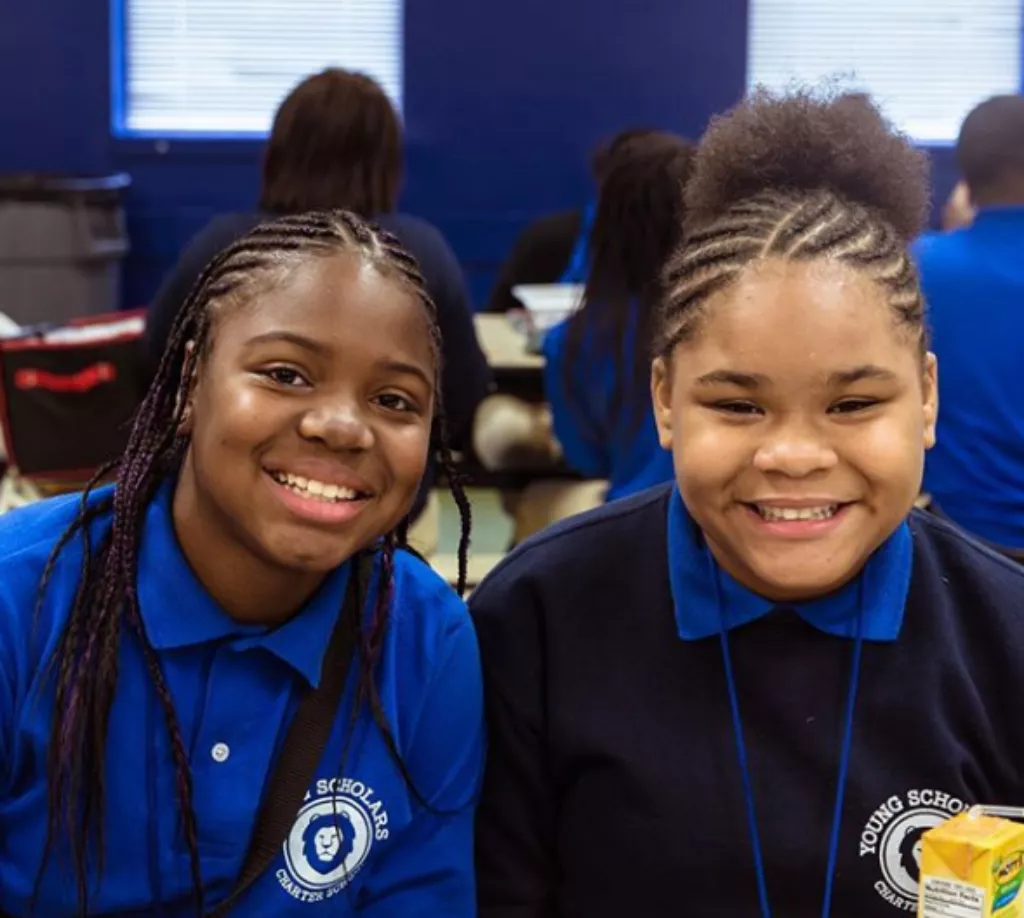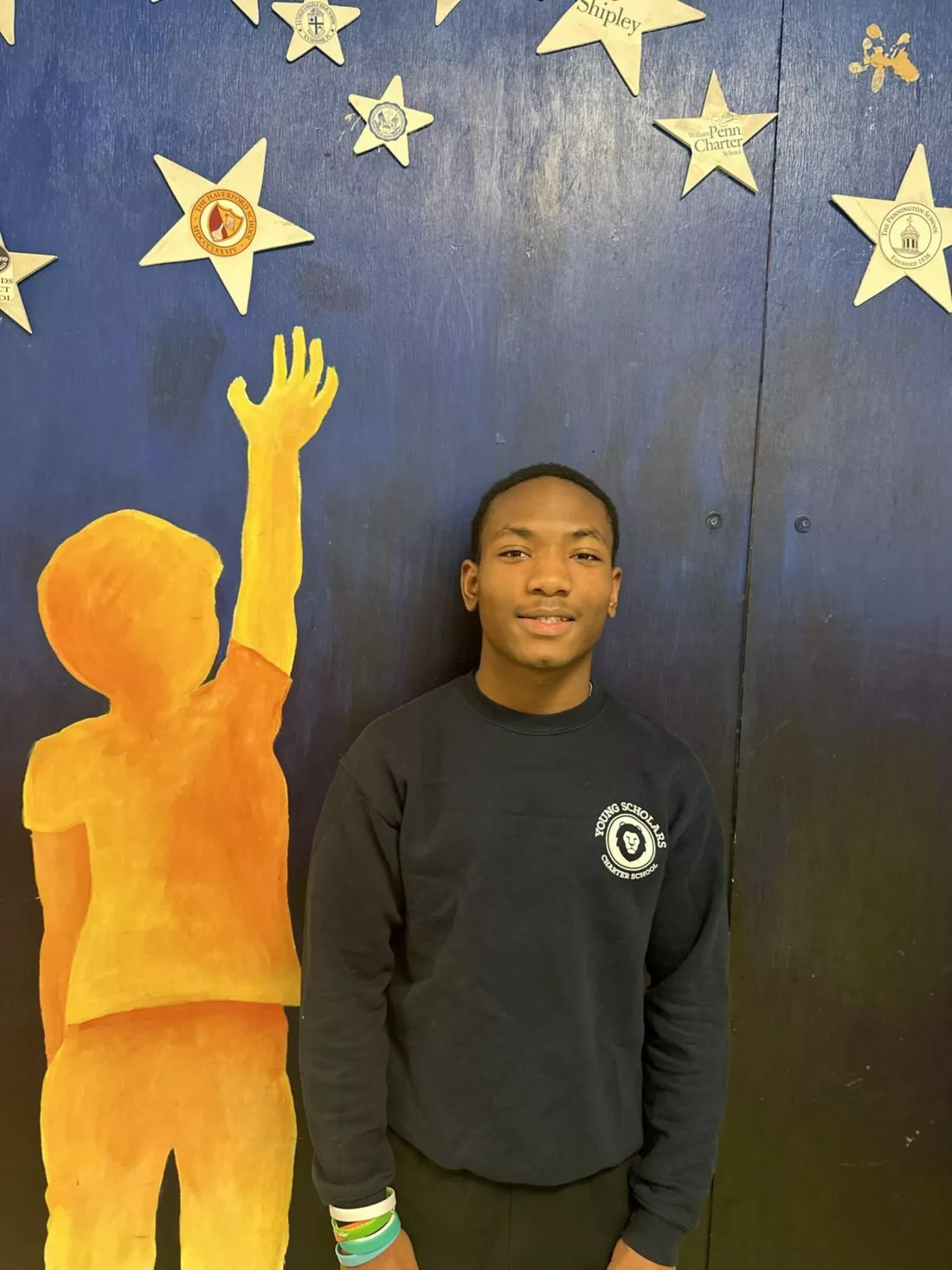School Practices that Work: Empowering Students to Take Charge of Their Educational Journey

In the heart of Philadelphia, Young Scholars Charter School serves a diverse group of 300 students from 31 zip codes. This middle school (grades 6, 7 and 8) is on a mission to inspire and equip each student for a life of achievement, service, and success. Young Scholars is not just about rigorous academics; it’s about building self-motivated citizens and strong leaders.
Three years ago, Young Scholars introduced Student-Led Conferences, an innovative new approach aligned with the school’s vision of personalized education. But despite the name, this initiative is about more than just a meeting; it’s an experience that empowers students to take charge of their educational journey.
“After doing this for three years, I got the hang of it,” shared Codie Truong-Anderson, an eighth grader at Young Scholars (photo), “and it makes me feel good to share with my mom how I am doing in school.”

Codie shows how students like him are not just participants, but the drivers of their academic narrative.
Student-Led Conferences at Young Scholars represents both a procedural change, and a paradigm shift. Students are now owning their data and taking responsibility for their learning. The process has led to an increased sense of ownership and accountability among students, fostering a culture where academic progress is not just assessed but celebrated.
Integral to this paradigm shift is a meticulous rubric used by teachers to evaluate students during these conferences. This rubric assesses students on factors such as eye contact and body language, speaking, organization, and explanation of ideas and information, with each category graded from “Developing” to “Accomplished.” This methodical approach prepares students for future life experiences by encouraging them to hone their academic skills, as well as their presentation and communication skills.
To prepare for these conferences, students follow a comprehensive script that guides them through various parts of the presentation. This preparation involves a thorough reflection on their identity, detailed discussion of classwork artifacts, objective analysis of their academic data, and a constructive conclusion. This level of preparation ensures that each student is ready to present their learning journey and equipped to engage in meaningful self-reflection and dialogue with their audience. The conferences have significantly increased parental engagement, with parents witnessing first hand their children’s growth and learning process
“This is getting him ready and teaches him how to critique himself,” expressed Nikia Andrew Reeves, a Young Scholars parent. “It shows me how hard he really is working."
The conferences begin with a staff member setting the stage, emphasizing real-world skills and transferable competencies. Students then present their work, and reflect on challenges, learnings, and academic data, including attendance, MAP data, and behavior points. This detailed approach culminates in a rubric-based evaluation, encouraging self-assessment and peer feedback.
"Thanks to our engagement efforts over the years, we’ve been able to significantly increase 8th-grade parent attendance in the practice from 12% the first year to 76% this year,” shared Charlene Caposecco, Director of Experiential Learning. “Moreover, 93% of students scored 12/16 or higher on their presentation rubrics. This impressive participation and achievement rate highlight the effectiveness of the Student-Led Conference model.”
Young Scholars Charter School’s journey with Student-Led Conferences is a story of commitment, innovation, and community engagement.
We believe it is also a clarion call to the city, educators, and community leaders: join us in this transformative journey. Together, let’s empower our youth to be the architects of their futures, fostering a generation of self-aware, responsible, and engaged citizens.